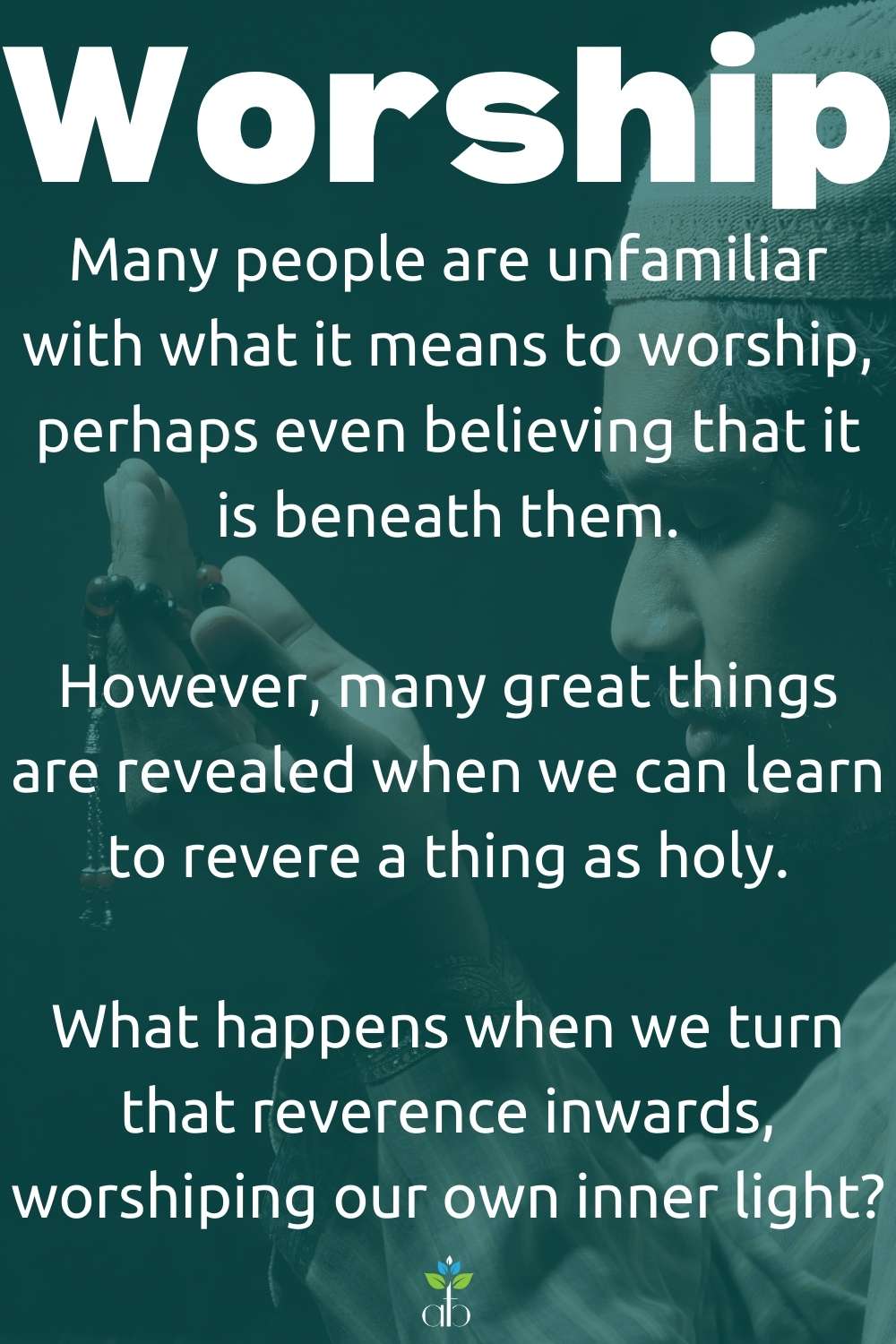Episode 473
Worship Yourself

In Swami Muktananda’s Play of Consciousness, he recounts the story of visiting his guru, Baba Nityananda. Muktananda observes Nityananda fulfilling his morning routine – spending an hour or more worshiping himself.
In another part of the book, Muktananda tells aspirants more directly to follow Nityananda’s example and worship themselves – turning their attention and praise within and basking in their own divine consciousness.
Perhaps it’s difficult to conceptualize exactly how to do it. Many people in modern culture are not familiar with what it means to worship.
Even so, the process is quite simple. If we imagine bowing to a great saint or to our god, we might start to feel a little twinge, a feeling of praise or glory. Then we can turn that feeling towards our own inner light.
Hosts & Guests
Kurt Robinson
Transcript
Welcome, beautiful thinkers!
I’m thinking about the concept of worshiping yourself.
So sometimes, many days when I wake up in the morning, I read Baba Muktananda’s “Play of Consciousness.”
And there are many, many interesting things in this book.
Actually, every chapter is fascinating.
If you open yourself up to read it.
I remember when Baba Muktananda was visiting his guru, Baba Nityananda.
And then Muktananda describes Nityananda’s morning routine.
And he says Nityananda spent an hour worshiping himself.
And then he got up, stood up from his meditation, overjoyed.
And Muktananda looks to this as an example.
He likes to follow the things that his guru does, learn from him, and even identify himself with him.
Believing that the essence of Nityananda is also within Muktananda.
It’s also within us.
I found it very interesting.
Nityananda is sitting there worshiping himself.
I wonder what could that possibly mean?
And it’s interesting to again, bring up this subject of Guru worship, which perhaps is better called guru identification.
Muktananda sees Nityananda worshiping himself, and Muktananda worships Nityananda.
He also worships himself.
Because these things are so closely related.
And at some points, Muktananda said to the sadhanas, more precisely, more clearly, “Worship yourself.”
And I do like to perform this practice.
It feels quite strange, and I’m not exactly sure if I know how to describe the process of it.
When I was in the temple Tham Krabok, in Thailand, when the ceremony, the chanting would finish in the evenings, we would all turn and kneel toward the statue of the Buddha and bow right down.
Cow toweling? I suppose you call it?
Battling right down till our foreheads touch the floor, three times.
Showing our respect for these ancient masters, who told us their wisdom, showing us the path, so that we might be free from suffering, that we might be liberated.
What does it feel like? To worship yourself?
To give yourself that same reverence that you might give a guru, a Buddha, arahat, a saint.
It might actually feel, in my experience sometimes it feels a little uncomfortable.
But I noticed the more I practice doing it, I can also do it, worshiping not just myself, worshiping others as well, or even before I eat.
Say grace and worship the food, respecting the divine essence within.
And I find if I am bothered, if I get myself bothered about somebody else’s behavior, I find quite quickly if I began to worship them in my mind.
Doing my best to see the divine aspect, or essence of that person, very quickly.
I start to calm myself down.
Because I realized that there is something deeper and on some level, my complaints is superficial.
They only go to the surface a little bit deeper, just a little bit deeper.
There is the essence of God, there is Shiva.
There is Shakti.
In the Quaker tradition, it says, in the Quaker manual, it’s got this manual for how to conduct meanings of the principles, the concepts, the Christian ideals, that express themselves through this wonderful practice of sitting together in contemplation.
People gather in a Quaker Meeting House and they sit in a circle.
And they meditate, contemplate, reflect on their lives, things that have happened to them, the things that have hurt them.
The things that they are grateful for.
And enjoy their presence.
Sometimes, people will sit in silence for one hour, nobody will speak.
But often, somebody will get up to speak.
And they will speak their heart.
Says in the Quaker manual, when somebody is speaking, whatever they bring in, anger or pain, or joy, gratitude, whatever they bring in.
If you ever find it difficult to connect with what they’re saying, again, open your eyes and ears, to that divine aspect.
To that presentation of the beyond, the great mystery.
That’s always with us.
Perhaps just out of sight.
Perhaps just touching the periphery, our awareness.
Once we expanded that nanometer.
That gnats wing.
Then we find beauty and peace.
Mystery opening to us.
We can worship ourselves, worship others.
Noticing what is precious in our souls.

New Episodes Every Weekday
11am Mexico City time
10 min episodes Monday - Thursday
1 h interview episode on Fridays
As an Amazon Associate I earn from qualifying purchases.
Stay Beautiful &
Stay Connected
